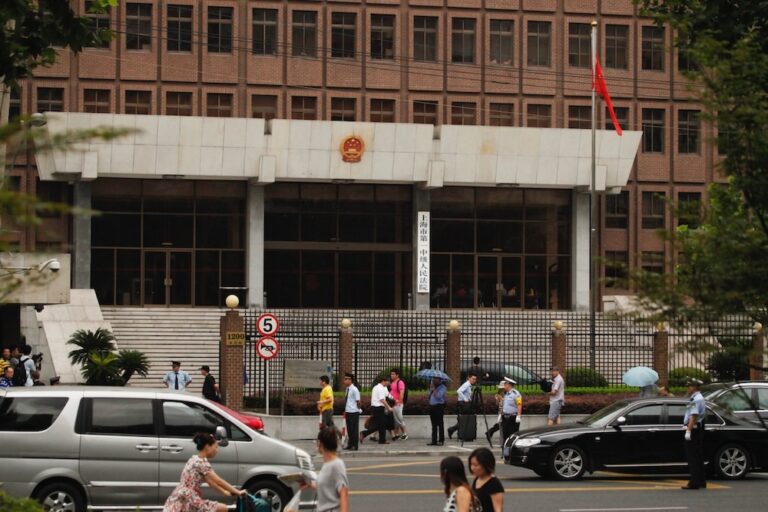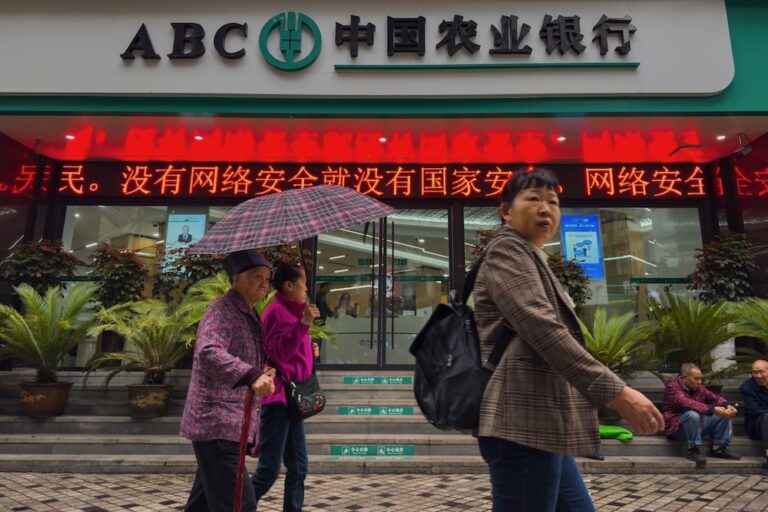(IPI/IFEX) – In a 7 November 2000 letter to “South China Morning Post” editor-in-chief Robert Keatley, IPI expressed its concern over the resignation of the “South China Morning Post”‘s China editor, Willy Wo-Lap Lam. Lam made his resignation public on 4 November after he was informed that he would no longer be in charge of […]
(IPI/IFEX) – In a 7 November 2000 letter to “South China Morning Post” editor-in-chief Robert Keatley, IPI expressed its concern over the resignation of the “South China Morning Post”‘s China editor, Willy Wo-Lap Lam.
Lam made his resignation public on 4 November after he was informed that he would no longer be in charge of covering the Chinese mainland, a decision the “South China Morning Post” described as a routine “organisational change”. According to IPI’s sources, the decision to remove Lam from his post as China editor left him with little choice but to resign. It is troubling that the decision that led to Lam’s resignation occurred only a few months after he was publicly castigated by the controlling shareholder and former chairman of the “South China Morning Post”, Robert Kuok.
On 29 June, Kuok wrote a letter to the editor of the “South China Morning Post” in response to a 28 June column in which Lam suggested Chinese leaders told a group of visiting Hong Kong tycoons they should support Hong Kong Chief Executive Tung Chee-hwa for a second term in exchange for favourable business treatment. This attack by Kuok on Lam is especially worrying considering the history of dismissals at the “South China Morning Post” and earlier attempts by Kuok to fire Lam.
In 1995, Lam’s name, although later withdrawn, appeared on a list of two dozen journalists to be made redundant. In addition, just before the redundancies, the then editor-in-chief, David Armstrong, dismissed cartoonist Larry Feign, known for his satirical depictions of the Beijing authorities. Furthermore, Jonathan Fenby, editor between 1995 and 1999, said that he had been under direct pressure from Kuok to remove Lam during his tenure. In 1997, Nury Vittachi, writing under the pen name Lai See, was dismissed by Fenby after he had criticised a pro-Beijing group. Reportedly, Kuok had personally ordered Vittachi’s dismissal. In these cases there seems to have been an apparent infringement of the principle of protecting editorial independence from external pressure.
It is IPI’s belief that the role of the editor is to safeguard the work of journalists and take full responsibility for articles published in his newspaper. In addition, a journalist should not be disciplined as a result of work already accepted by the editor for inclusion in the paper. The decision leading to Lam’s resignation seems to have been influenced by external interests, thus affecting editorial independence. This argument is further strengthened by the dismissals of other Beijing critics from the “South China Morning Post”.
Lam’s resignation also raises fears over the amount of influence pro-Beijing groups and the Chinese authorities have over what is reported in the Hong Kong media. Kuok allegedly has ties to Beijing and has in the past stated that the Hong Kong press should avoid confrontation with Beijing. In addition, a week before the decision to remove Lam from his editorial duties, China’s President Jiang Zemin attacked Hong Kong journalists during a press conference calling them “naïve.”
In addition, bearing in mind that Lam wrote his comments in a column which is widely understood to be a commentary rather than a news article, it seems that he was sidelined as a result of expressing an opinion.
Recommended Action
Send appeals to the “South China Morning Post”‘s editor-in-chief:
– calling on him to reconsider the situation and reinstate Lam in his former position, thus ensuring editorial independence is maintained at the “South China Morning Post”
Appeals To
APPEALS TO:Robert Keatley
Editor-in-Chief
South China Morning Post
Hong Kong
Fax: +852 2811 1048Please copy appeals to the source if possible.


